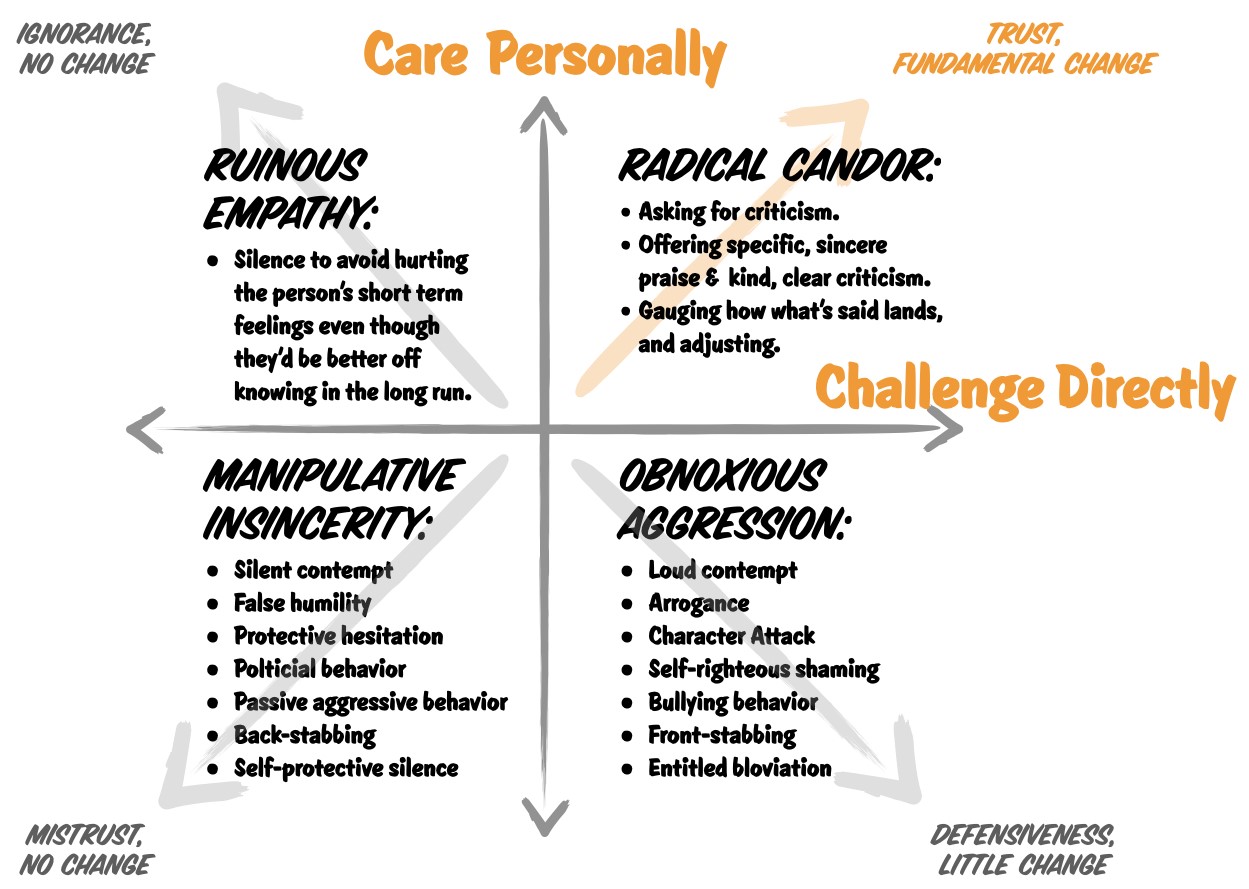
I was recently at a meeting where Teresa was personally attacking John for a mistake on an important project. Teresa’s boss Jennifer was in the room. As I observed Jennifer’s reaction, her body language said that she was highly annoyed and frustrated with Teresa’s behavior. Yet, she said nothing in the meeting. I talked to Jennifer a few days later and asked if Teresa’s behavior had been addressed in a more private setting.
I could tell from Jennifer’s reaction that the response was a no. I asked why not and got “I’m not comfortable having these kinds of behavioral conversations”. By deciding to not give direct feedback, Jennifer decided to let this behavior fester in the team dynamic.
As leaders who want a high performing team, one of our most valuable skills is the ability to give direct and candid feedback.
We might have all kinds of thoughts about this….”I don’t know what to say”, ”I don’t want to hurt their feelings”, “I’m not prepared for their reaction”, or “I can’t handle crying”.
But what if, instead of focusing on how they are going to react, you focus on why it’s important to give them feedback? If you care about this person and their career aspirations, isn’t it better to tell them directly when there is a problem so that you can help them brainstorm ways to correct it?
Sure, they might react emotionally at first, but isn’t it important to help this person by sitting with them and their emotions? That’s what you’re trying to do here, right…help them?
In her book Radical Candor, Kim Scott states that “building trust in any relationship takes time because trust is built on a consistent pattern of acting in good faith”. In other words, you must show your team members that it’s safe to get feedback from you because you have their best interests at heart. This has to be demonstrated in every interaction you have with them, over and over again. You can’t just decide to give the feedback that feels safe to you.

Direct feedback isn’t some magic skill with which you are born. You have to continually sharpen this skill on a daily basis.
One way to have these kinds of feedback conversations is to structure your feedback conversations similar to an After Action Review (AAR):
- What went well? – really listen here to get to know the person better. If they can’t answer this question, they may be overwhelmed or exhausted. Find out why and what you can do to help.
- What didn’t go well? – 9 times out of 10 they are going to talk about the area you want to talk to them about in the first place if they feel safe with you. If they don’t hit it exactly on the head, it’s a simple redirection exercise to get them there.
- What can you do differently next time? – let them come up with the solutions but make sure they keep it simple. Role play with them to help them practice. Encourage them and let them know that you believe in them and their ability to improve future outcomes!
This process builds a repeatable and consistent structure for you and your team members. They know what to prepare. They know you will give them honest feedback because you care about them and their career goals. Tell them every time you give them feedback that you are doing it because you have very high expectations and you know that they can reach them.
You can also use the AAR process on yourself every week in relation to your progress with sharpening the skill of direct feedback.
Be the leader who is constantly sharpening your skill of direct feedback. Your team will know you care about them and you will help create a culture of high performance by eliminating behaviors that might damage the team dynamic
If you want to learn more about how to sharpen your direct feedback skills, reach out to our team!
Authored by: Holly Lewis, Performance Coach














0 Comments